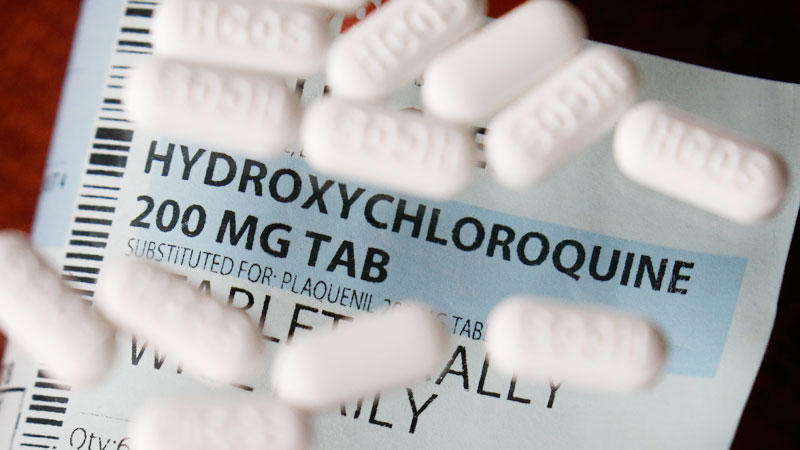A new Michigan study, published by Henry Ford Health System, has found that early treatment with hydroxychloroquine, an old malarial drug, significantly reduced the risk of death on certain patients who were hospitalized with COVID-19, the infection caused by the novel coronavirus.
The study, published in the International Journal of Infectious Diseases, is yet another curve in the ongoing research of the drug, which initially seemed promising at treating COVID-19 but later, it was found to raise cardiac concerns in some patients.
Researchers looked at outcomes of more than 2,540 COVID-19 hospitalized patients from March 10 to May 2. They found that 18 percent of the patients died. However, there were significant differences in the treatment of all the patients.
In the study, among patients who were given hydroxychloroquine as part of early treatment, 13 percent died, compared with 26 percent of those who were not given the drug.
The mortality rate was high among patients who were above 65, white, and who had underlying medical conditions and low oxygen levels.
Infectious disease expert Dr. Marcus Zervos at Henry Ford Health System said the study results were different from other studies.
He said, “There’s variability in the literature on outcomes with hydroxychloroquine … What we think was important in our study was our patients were treated early. And for hydroxychloroquine to have a benefit, it needs to be given before the patient suffers some of the severe immune reaction that can occur with COVID.”
“That’s because the drug works by inhibiting the immune system’s inflammatory response to the virus,” Dr. Zervos added.
He went on to say that it is important to use hydroxychloroquine along with other medications, such as steroids, to treat COVID-19, suggesting that the malarial drug could be useful in treating the illness, especially in countries that do not have access to remdesivir, an antiviral drug that has been found effective.
Dr. Zervos said, “Many of these countries, they could be low-income settings. They don’t have access to remdesivir. Remdesivir is going to be expensive. Hydroxychloroquine is inexpensive. So I think the drug does have a role.”
Apart from treating and preventing malaria, hydroxychloroquine is often used to treat autoimmune diseases such as rheumatoid arthritis and lupus.
In the initials stages of the pandemic, President Donald Trump touted the drug as a potential game-changer in treating COVID-19 despite warnings from experts that there is no enough evidence.
Researchers quickly urged caution as doctors started reporting potentially dangerous effects of the drug on the heart. In April, the U.S. Food and Drug Administration (FDA) warned against the use of hydroxychloroquine after studies raised concerns over the drug’s ability to affect the heart’s rhythm.























